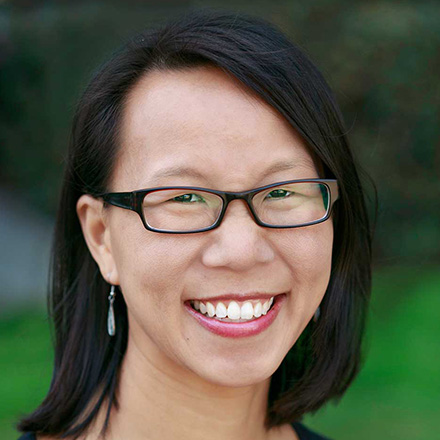ARG Research Team Examines Tobacco-Free Policies at Community Colleges
Program
Highlights

PHI’s Alcohol Research Group examined campus and community influences that make a community college campus 100% tobacco-free—helping to create unique partnerships with community colleges, new funding to support tobacco-free campuses and research opportunities for building the workforce in tobacco control research and advocacy.
-
Focus Areas
Alcohol, Tobacco, Drugs & Mental Health -
Issues
Tobacco -
Expertise
Coalition & Network Building, Health Education & Promotion
In California, only 76 of the 116 community college campuses (about 66% of campuses) in California were 100% smoke-free or tobacco-free in 2023. This is a stark contrast to California’s four-year public colleges which are all tobacco-free. Tobacco-free environments can increase anti-tobacco norms, reduce smoking and second-hand exposure, and support cessation efforts.
 In response to this disparity, a research team at the Public Health Institute’s Alcohol Research Group conducted a mixed-method study that examined both campus and community influences on what makes a community college 100% tobacco-free. The research project began as a concept and grew out of seed funding that the Alcohol Research Group received from PHI’s development department in 2018.
In response to this disparity, a research team at the Public Health Institute’s Alcohol Research Group conducted a mixed-method study that examined both campus and community influences on what makes a community college 100% tobacco-free. The research project began as a concept and grew out of seed funding that the Alcohol Research Group received from PHI’s development department in 2018.
The research team, led by scientist Dr. Camillia K. Lui, analyzed tobacco control policy databases including CYAN tobacco policy database, school administrative records, survey data, Census and other data, along with case studies of 12 community colleges and 36 stakeholder interviews. Study findings pointed to influential factors that have been used to facilitate the adoption of tobacco-free policy at California community colleges. Results are being used to help the remaining 40 community college campuses overcome institutional and other barriers to tobacco-free policy adoption and to deliver more effective environmental strategies to reduce tobacco-related disparities.

This is the first study to assess policy adoption over 16 years within a racially, ethnically, and socioeconomically diverse post-secondary public education system.Dr. Camillia K. Lui
Scientist, Alcohol Research Group
Research Findings
The research team examined how the local context influences tobacco-free policies and found the following:
- Community colleges located in California cities with strong tobacco control policies and campuses with more health resources were more likely to adopt a 100% smoke or tobacco-free policy. Learn more
- Colleges that had received technical assistance support from the California Youth Advocacy Network, a leading tobacco control organization, were more likely to have a policy in place.
- Case studies revealed key strategies and barriers for policy adoption.
- Key Strategies: Campus-community partnerships, external funding like the Truth Initiative, policy framing specific to each college and student interests, and students as champions to coordinate and advance policy efforts were critical.
- Barriers: Despite having partnerships and resources, a number of colleges experienced a complicated policy adoption process that can take several years, unsupportive leadership, competing priorities, and high student and staff turnover that often stalled or halted policy efforts.
Results suggest that inequities in tobacco-free policy adoption were not due to area-level disadvantage or local smoking norms, which included adult smoking prevalence and number of tobacco retail outlets. Compared to the 4-year public college system that utilized a universal approach to tobacco-free policy, the California community college system is characterized by a shared governance process for policy adoption that prioritizes local level decision-making. As each college or district oversees the policy adoption process, our findings showed that some colleges were successful with navigating the policy process with fewer barriers while other colleges experienced a number of hurdles that made policy adoption unsuccessful.
Fewer rural campuses (24%) had adopted tobacco-free policies compared to their urban or suburban community colleges (60%). This stark difference in rural versus urban/suburban campuses also continued over time. However, even when controlling for campus location and geography, the primary factors associated with policy adoption remained. Of the 17 community colleges located in rural areas, four campuses adopted tobacco-free policies by 2022 despite the high rate of smoking among local community members and poor tobacco control policies.
These findings point to common factors to policy adoption but also unique hurdles that vary by geography, campus type and campus/community partnerships that warrant further studies.Dr. Camillia K. Lui
Scientist, Alcohol Research Group
Student Engagement and Training
Through a partnership with Ohlone College in Fremont, California, community college students were recruited and trained as research assistants who supported qualitative data collection and analysis. Students participated in stakeholder interviews, transcribed, coded, and analyzed the qualitative data. They were also active in disseminating the findings from the research.
During their time on the project, two of the three students participated in PHI’s summer internship program. A student-led analysis on how to engage community college students in tobacco control policies was presented at the 2022 Society for Public Health Education’s annual youth advocacy summit in Washington, DC. The students also published a peer-reviewed article in 2023, Engaging Students in Advancing Campus Tobacco-Free Policies: A Qualitative Study of California Community Colleges’ Efforts, that was recognized as original research in the Centers for Disease Control and Prevention “Preventing Chronic Disease Student Paper Contest,” an annual scientific writing opportunity for students and their faculty mentors.
Strengthening Relationships & Community College Research
This study established strong relationships with California community colleges and led to additional research opportunities. Since the study began in 2019, the ARG study team has continued close relationships with Ohlone College, Health Services Association California Community Colleges, and built new partnerships with the California Community College Chancellor’s Office. Dr. Lui worked closely with partners on research and data projects to support capacity building and advocacy within community colleges. These relationships have also led to further collaborations around other public health issues of high priority for students at community colleges, including reproductive health services, mental health services, student health services, and basic needs.
As a result of this work, Dr. Lui, in partnership with Ms. Kimberlee Homer Vagadori at California Youth Advocacy Network (a program of Heluna Health), and Dr. Sang Leng Trieu and Ms. Becky Perelli at Ohlone College received additional funding on a community-partnered research study to enhance tobacco screening, early intervention and student cessation.
Due to a settlement reached by the California Attorney General’s office with JUUL Labs, Inc, California’s Tobacco-Related Disease Research Program (TRDRP) has allocated funding to support research such as this on nicotine cessation strategies for youth and young adults as well as other individuals disproportionately affected by tobacco-related diseases. Furthermore, Ohlone College received a Tobacco-Related Disease Research Program smoke-and-vape-free scholars grant to build the workforce pipeline in tobacco control research and advocacy.
Building Greater Momentum
The community college system represents a unique but optimal setting to reach the diverse populations of California young adults including people of color, immigrants, veterans and people with disabilities. Thus partnerships to expand tobacco control services as well as other health and social services can have large impacts on overall health and wellbeing of California young adults.
This work was supported by the California Tobacco-Related Disease Research Program’s New Investigator Award (2019-2023). ARG study team included: Dr. Nina Mulia, Mr. Yu Ye, Ms. Deidre Patterson, Ms. Anne-Marie Gomes, Ms. Diane Schmidt, and Mr. Dustin Khebzou. Research and community partners included: Dr. Sang Leng Trieu at Ohlone College, Dr. Elisa Tong at UC Davis, Kimberlee Homer Vagadori at California Youth Advocacy Network, and Katie Moose at California Gold Country Collaborative. Key community college partners included: Ms. Becky Perelli, a leading community college consultant and mental health nurse, Health Services Association of California Community Colleges (including past presidents Beth Hoffman and Nicole Johnson), and the 36 key informants who represented 12 community colleges: Allan Hancock College, Butte College, City College of San Francisco, Columbia College, Feather River College, Merced College, Pasadena City College, Pierce College, San Bernardino Valley College, Santiago Canyon College, Shasta College, and Skyline College.
About the Alcohol Research Group
The Alcohol Research Group (ARG) is a program of the Public Health Institute. For over 60 years, ARG has been actively engaged in critically needed alcohol- and other drug-related public health research. ARG studies drinking and other drug use and how these and other factors such as gender, race/ethnicity, sexual identity, socioeconomic disparities, and environmental differences affect health. ARG is also home to the NIAAA-funded National Alcohol Research Center and training program. For more information, visit their website.
Work With Us
You change the world. We do the rest. Explore fiscal sponsorship at PHI.
Support Us
Together, we can accelerate our response to public health’s most critical issues.
Find Employment
Begin your career at the Public Health Institute.
